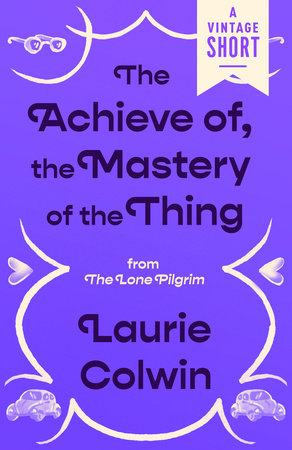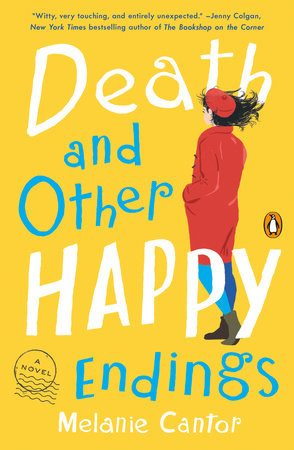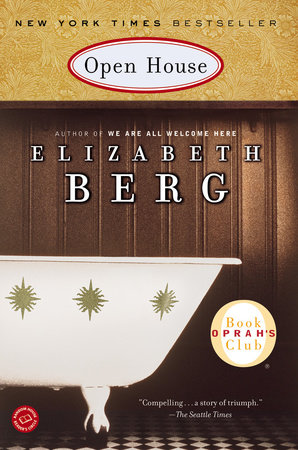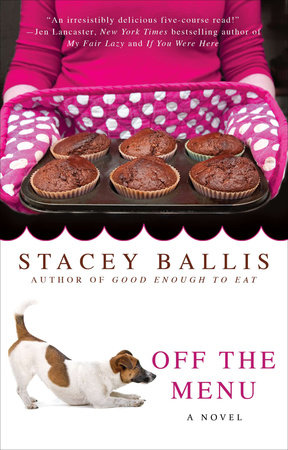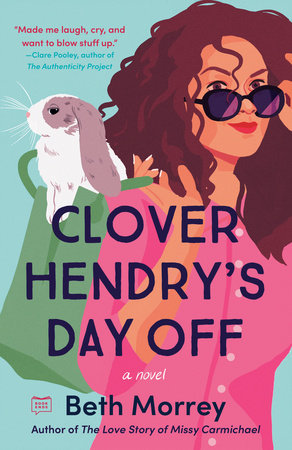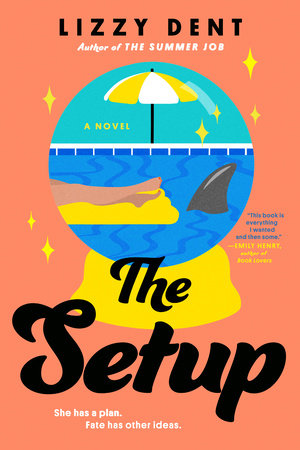A Conversation with Curtis Sittenfeld
Katie Bacon is a writer and editor based in the Boston area.
Katie Bacon: You commented in an interview about Prep, “I could look at Prep and feel like there are a lot of things wrong with it. But, ideally, I won’t make the same mistakes again.” What did you learn from that experience, and what did you set out to do differently with this book?
Curtis Sittenfeld: Well, the timing is funny, because about 75 percent of The Man of My Dreams was finished by the time Prep was published. But I think that The Man of My Dreams is a tighter, leaner book. When I wrote Prep, if in doubt, I included something, and with this book, if in doubt, I didn’t include it. Not every element of the entire world needed to be explained. I don’t know if I’ll ever again write a book as long as Prep, which is about four hundred pages. I’m not one who sees length as a virtue in and of itself. Hannah, in The Man of My Dreams, is definitely a neurotic person, as is Lee, the main character of Prep. But I do think there’s a little bit less dwelling on every single moment on Hannah’s part than on Lee’s. Lee would preemptively analyze a moment and then analyze it while she was experiencing it and then analyze it after it was finished.
I also think that the end of The Man of My Dreams is more unambiguously happy– there’s more of a feeling of the character having changed and progressed.
KB: So you see the end of The Man of My Dreams as unambiguously happy?
CS: It doesn’t necessarily fulfill the most common expectations of what a happy ending is, but I definitely think it’s happy. For anyone who hasn’t read the book, I don’t want to give too much away, but I think it’s more of an achievement to learn to be happy on your own than to snag a man who makes you happy. For Hannah, that realization is very liberating.
KB: How did you come up with the idea for The Man of My Dreams? Had it been brewing in you for a while?
CS: I’d written a little episode in which Hannah hooks up with a guy she works with, and I started thinking, What was Hannah like before this happened, and what was she like after this happened? I thought it would be interesting to delve into different episodes in her life and focus on them in terms of her relationships with the opposite sex or her ideas about the opposite sex. All the episodes are linked by that. I could probably have written a novel only about, say, Hannah and her mother, who is not a major character in the book, but the particular focus I chose was this search for love, which is incredibly mentally consuming for a lot of women, starting when they are teenage girls and then continuing long into adulthood. I think a lot of people expend a lot of energy on it.
KB: One relationship that did seem very important to how the book moved forward was Hannah’s relationship with her sister, Allison. It was interesting how different their lives were but also how they would so easily fall into fights centered around that fact. How important was that relationship as you were conceptualizing the book?
CS: Hannah is often observing the world around her and trying to figure out, What is a healthy relationship between a man and a woman? And what is a healthy relationship that’s not boring? What’s something that I could want that I could realistically get? And about her parents, she thinks, Oh, my God, I would rather never kiss a man than be in their relationship. So Hannah is often analyzing other couples. And in terms of herself and Allison, she feels that they’re somewhat alike, and obviously they have the same parents. If everything had gone right for Hannah she might have been more like her sister, so she pays particularly close attention to her sister’s relationships. And yet, this sister that she admires ultimately marries someone whom Hannah thinks she’s settling for, and then later her sister and her husband have some problems in the relationship. A lot of the book is Hannah’s progression from thinking that any relationship is perfect to recognizing that all of them are flawed, and that that’s not necessarily a horrible thing. It’s just the way adult life is.
KB: At one point the narrator comments about Hannah, “It’s just that college dating, all the rituals and weird outfits and coded things you’re supposed to say–they seem so removed from her particular desired outcome.” Do you have the sense that a lot of people feel exactly as Hannah does, but we just aren’t given access to their thoughts? In other words, is Hannah as different from everyone else as she thinks she is?
CS: The feedback that I got for Prep, and the feedback that I’ve gotten so far for The Man of My Dreams, has been pretty consistent. Some people will say, “I identify so powerfully with this book and I’ve had all these feelings, but I’ve never expressed them or heard them expressed.” And then other people think, Oh, my God, this character is insane. She has such deep social and emotional problems; I don’t know why anyone would want to write a book about her or read about her or get within fifty feet of her.
There are plenty of people who don’t second guess themselves or analyze other people or feel disappointed very often, and then there are people who have those experiences constantly. I had a teacher once who said, “There’s so much fiction about being on the outside because writers feel like outsiders.” His point was that that’s kind of misrepresentative, because most people don’t feel like outsiders–they aren’t the ones who write books.
KB: But we all have stuff that goes on in our heads that we wouldn’t admit to anyone. It seems like the difference here is that your characters are admitting their neuroses and letting them be shown on the page, whereas we don’t normally have that access.
CS: Actually, I feel like a lot of writers accost you with their neuroses. I remember being in grad school at the Iowa Writers’ Workshop, and someone would tell you, in your first conversation, what antidepressant they were on. But I think you’re right that plenty of regular people want to conceal their weaknesses. And people have told me, mainly about Prep, “I was reading this, and at times I felt like I had to turn away.” And I’ll think, Don’t feel embarrassed for me. It’s not as if I’m blindly writing this stuff and have no idea what I’m revealing about myself. It’s manipulated. I’m basically manipulating language. It’s not the way everyone who manipulates language would choose to do it–it’s not everyone’s inclination to write about these neurotic young women, but apparently I enjoy it. Someone should feel embarrassed for me if they think my book is badly written, but they shouldn’t feel embarrassed for me about the emotional content. I don’t feel exposed by my book. In a way, it’s flattering when someone says, “This is so raw.” But I feel, Oh, God, it’s not raw. It’s so worked over and revised to achieve the appearance of rawness.
KB: At one point in the book, while dissecting Hannah’s personality, her cousin Fig tells her that she’s not that funny, though allows that Hannah does have a good sense of humor. But it seems to me that Fig is wrong–that Hannah’s quirky, funny comments about the world are one of her defining characteristics. Does she keep this aspect of herself too buried for others to see?
CS: I think that Fig and Hannah, when they’re together, have their established roles, whether they like it or not. Fig is outrageous and sexy and rude, and Hannah is mousy and grumpy and accommodating. Those are the times in their lives when they’re most that way, because they emphasize the contrasts between them just by being together. But I have to say, I don’t think Hannah is that funny. I think she’s more quirky than outright funny. But that’s one of those things that’s very hard to judge in your own writing. People have told me that they laughed out loud at parts. And Fig’s comment in the book about Hannah’s sense of humor might have been me apologizing for not making Hannah a funnier protagonist–so if you thought she was funny, I’m glad.
I’ve gotten mixed feedback on the question of her likeability. I actually think Hannah is this sweet, quiet person who occasionally says something that is very harsh. But it’s said almost in an innocent way, because of a lack of certain social skills. I think that Lee, in Prep, is a more complicated, negative person.
I have this theory that the likeability question comes up so much more with female characters created by female authors than it does with male characters and male authors. A male character can murder someone, and people don’t ask, Is he likeable? Is he sympathetic? Whereas if a female character doesn’t write a thank-you note, people say she’s sinister! Also, I feel like there are a lot of books I read where, with the female characters, it’s almost as if they’re pleading to be liked. And as a reader, I hate that. So maybe I’ve gone very far in the other direction in terms of not trying to slip in endearing traits.
KB: Hannah presents herself as someone not all that attractive, or at least as someone who has little confidence in her looks. Yet for all the descriptions of other people in the book, we don’t get all that much of a sense of what Hannah looks like. What’s the image of her you have in your head? Is she more attractive than she thinks she is?
CS: The answer to the second question is yes. I think maybe the only time that her looks are described is in the first chapter, when she’s fourteen years old. She’s meant to be perfectly attractive, but she has all these insecurities. She frets about her weight, as so many women do. A copy editor flagged this and asked, “Is she heavy? Is she pretty or not pretty?” And I kind of said, Well, that’s the point! Isn’t that the question that so many people ask themselves: Am I pretty? Am I heavy or not heavy? I feel like there are plenty of books where the main character thinks, My butt is big, and then seven other characters are saying, “No, you’re gorgeous!” I didn’t want that reassurance in there. I feel like that puts the reader almost too much at ease. And it puts Hannah too much at ease. Maybe I wanted to mimic the way people have that question in real life. Either you resolve it at some point, or it remains an ongoing issue for you. I can understand how for a reader, my choice might be frustrating, but it actually is intentional to not give too much away.
KB: When you were working on Prep and The Man of My Dreams, was it confusing at all to be switching back and forth between two neurotic young female protagonists?
CS: No. I did write parts of this before Prep, but I feel like everything that I wrote before was a big mess, and then I straightened it out and became much more focused once Prep was behind me. It would be naïve of me not to recognize that some readers are going to find these characters very similar. And there are lots of writers I like whose protagonists are very similar book to book–John Updike, Alice Munro, Lorrie Moore. So that’s something that in and of itself I don’t feel bad about. But to me, of course, Lee and Hannah are incredibly nuanced and distinct. I would never mistake one for the other. Maybe it’s like a photographer who takes picture after picture of very similar subject matter. To him, every little shadow matters, even if it doesn’t to the outside world. But there are definitely similarities. I have said to people, “If you liked Prep, I think you’ll like this. If you didn’t like Prep, I think you won’t like this.”
KB: I know that many reviewers wondered how much in Prep was based on your own life. Has that question had any influence on your work since Prep?
CS: I have to be prepared for that question. It would just be unrealistic at this point for me not to expect it. But to tell you the truth, that’s probably my least favorite part about the promotional process, the part that makes me feel tired. People are asking pretty personal questions. If they ask, “Did you have a boyfriend like the one in the book?,” whether the answer is yes or no, they’re still asking me to reveal certain information about myself. On the other hand, I’ve been a reporter, and while there are certain questions that I’m not crazy about being asked, if I were the reporter, I would definitely ask them. So I don’t fault people for asking, but if I really wanted to expose myself, I would write a memoir, not a novel. It’s not a coincidence that I write novels.
There are plenty of plot differences between The Man of My Dreams and Prep–one set of parents is divorced, one isn’t. One girl has a relationship with a guy starting in high school, and the other doesn’t have a relationship until college. So it’s already impossible for everything to be autobiographical. And I think that the longer I write, the smaller that question will seem. I hope that in the long term, my writing will speak for itself.








